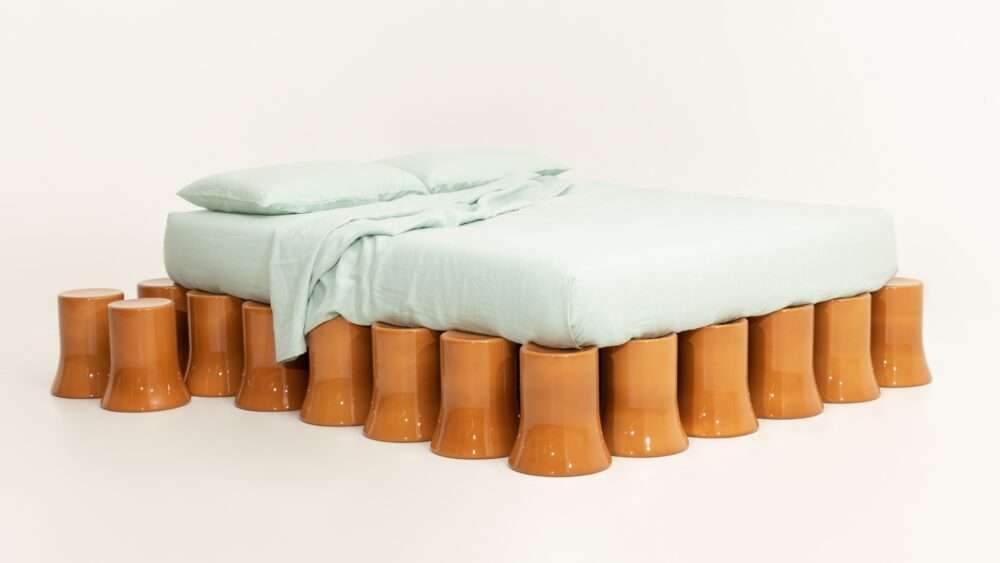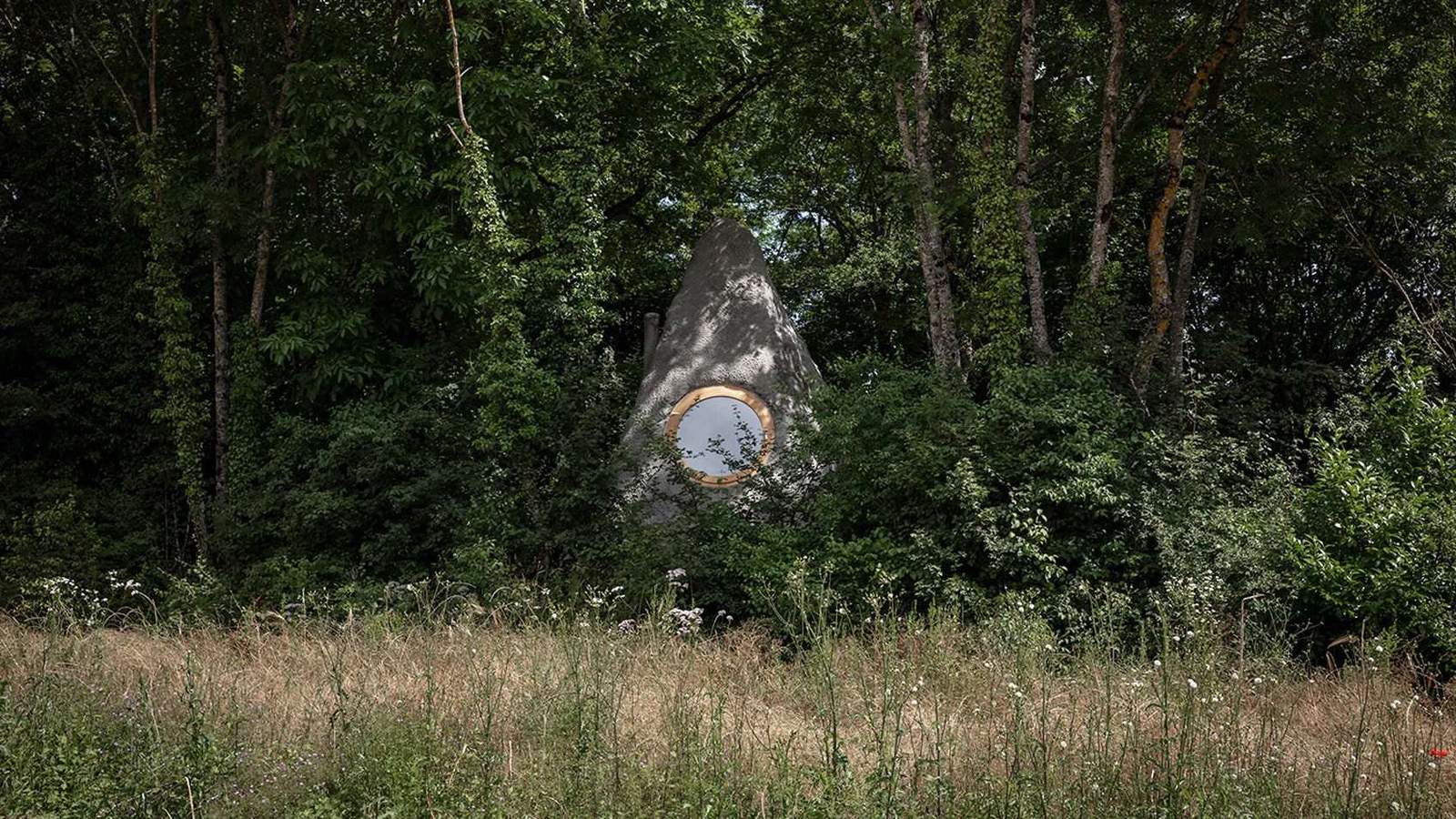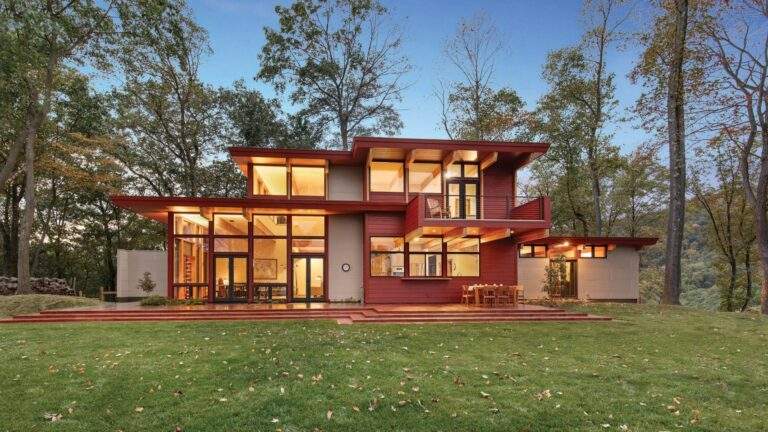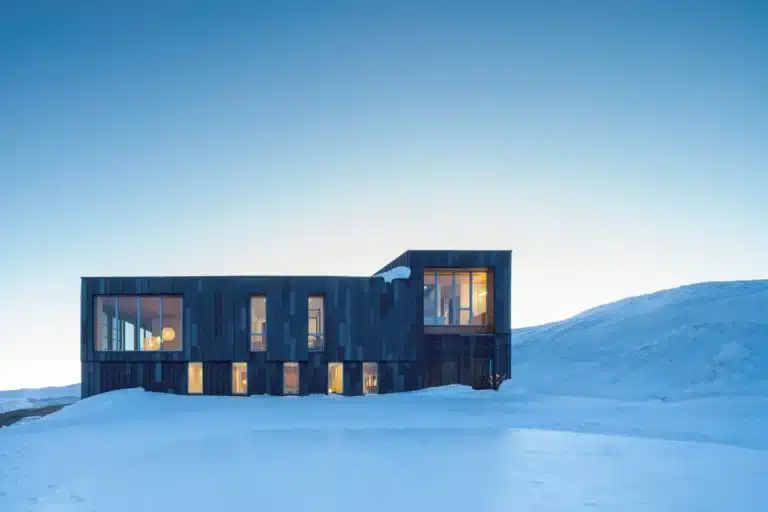Cast Corbel House / Grafted







Text description provided by the architects. Situated in the Golden Triangle, a verdant suburban area of Norwich, Cast Corbel House has been redesigned and crafted by Norwich and East London-based architects, Grafted. The newly refurbished home features a rear extension with an updated geometric precast and brick façade that celebrates material exploration and craftsmanship. Grafted launched in 2022 as a design and build firm, realizing an opportunity to produce ambitious architecture whilst simultaneously creating highly crafted design.

The practice was approached by a family who were keen for them to enact long-standing plans to replace a poor-quality extension. The practice has since honed in-house fabrication skills, enabling them to deliver the ambitious design within the project’s time and budget constraints. Briefed to reinvigorate an existing Victorian house for clients whose large family visit regularly, Grafted has reorganized key living areas and delivered light, functional spaces and ultimately, a home better suited to entertaining guests. Cast Corbel House is dictated by its foundation in quality workmanship, prominent in the handmade, precast panels that wrap around the new extension.

Cast Corbel House, a five-bedroomed detached house, previously consisted of a challenging ground floor plan with limited openings for natural light and viewpoints. The house had undergone a minor renovation in the 90s, which resulted in poor accessibility and cold spaces due to uninformed material choices, another key obstacle Grafted sought to rectify. Grafted were guided by their clients’ secondary wish to achieve better work-life balance within the ground floor plan, resulting in a new layout of distinctly separate zones between office space, rest and social areas.



The practice has utilized the expansive footprint with functionality front of mind, as the client’s extended family continues to grow and so does their demand for hosting. On entry, the hallway has been reorganized to draw visitors through the home, encouraged by rear views to the garden. A logical, linear pathway replaces a previously obstructive utility room with a neater laundry configuration now tucked behind handcrafted oak panels. In keeping with the character of the building, Grafted has maintained the original heritage tiles laid in the foyer. Within the kitchen, Grafted reveals a capability to deliver beautiful, tactile joinery that functions effortlessly.

Handcrafted cabinetry, carefully chamfered edges and even an inclusion of a bespoke spice draw offer a depth of personal detailing otherwise unavailable from off-the-shelf kitchen producers. The kitchen largely embodies natural materials to enhance the connection to the large rear garden and offer a warm interior atmosphere, with surfaces and doors finished in richly stained oak. Keen to reconnect the clients with the finer qualities of their house whilst embracing high-quality contemporary detailing, a less is more approach to architecture prevails throughout the interior.

The dining area sits below a gently pitched, hipped roof and adjacent to a central column retained to offer a distinction between kitchen and dining areas. The structure and orientation of the kitchen with direct garden access was intended to free up more active space for its occupants. A desire to add warmth and texture – resolving the pre-existing thermal deficiency of the room – features in the new hand-upholstered double window seat, with added storage, and technically marries up to the rest of the kitchen through slender oak datum lines, which vertically line the surrounds. An appreciation for local business is also showcased in the kitchen and living areas, displaying a curated selection of works from Norwich contemporary art gallery, Mandell’s.

The new studio’s style is embodied in their care for material connection. The extension is enhanced by a columnal pattern of red bricks, influenced by existing brick detailing. Corbelled precast masonry exemplifies Grafted’s hands-on approach to craftsmanship, and skill in creating a sensitive dialogue between the past and future through subtle reference and ornamental material application. This too is accentuated further in Grafted’s concerted fabrication process, a defining foundation of Cast Corbel House and the practice.


Grafted cut inverted molds using both plywood and rigid foam into which rich red pigmented concrete was poured. Grafted designed and engineered their own motorized vibrating table to remove lingering air bubbles, resulting in smooth precast fascia panels. Working to a façade support design by Banfield Wood, the practice achieved an ambitious undulating wraparound pattern spanning 82 precast panels, a large number of which were one-off ‘specials’.

This commitment to controlled craft channels the practice ethos, foregrounding a dedication to detail. The landscape concept design by Studio GB made use of Grafted’s ability to deliver a ring of hand-polished terrazzo coping stones, capping an existing circular pond. The first phase of the landscape design introduces a radial paving design and warm planting palette, set against a dense backdrop of mature trees and planting. As a debut project for the emerging practice, Cast Corbel House demonstrates an eagerness to remold preconceived interpretations of design and build. Grafted’s commitment to combining high-quality design with skill and craft empowers clients to achieve affordable, personal design at any scale.







